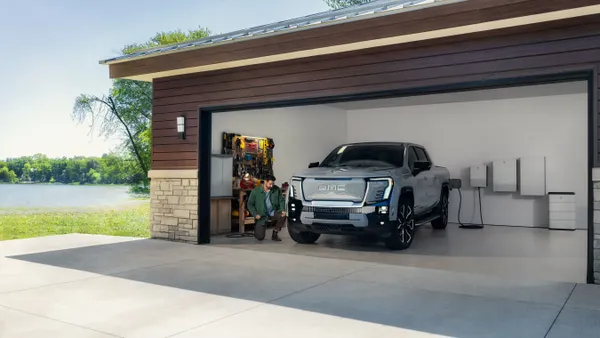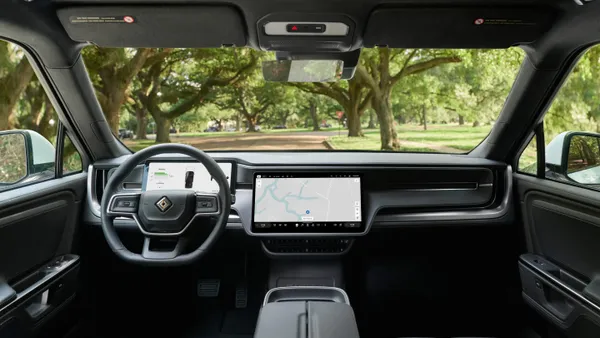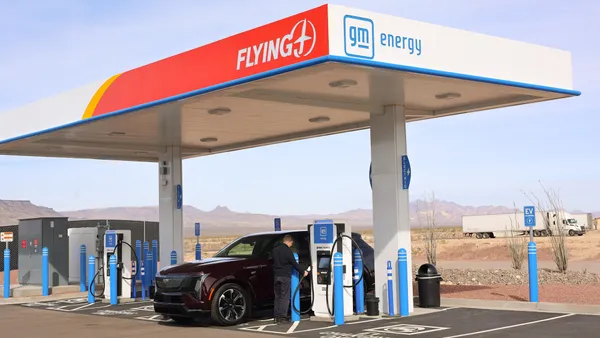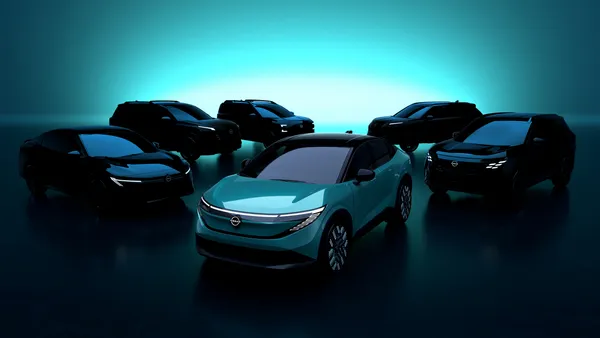Dive Brief:
- The number of U.S. consumers considering an electric or hybrid vehicle jumped 19 points, rising from 29% in 2022 to 48% in 2023, according to EY’s 2023 Mobility Consumer Index.
- For purely electric models, this figure rose from 7% in 2022 to 22% in 2023.
- This year’s survey showed the largest increase in consumer interest in electrified vehicles since EY started publishing it in 2020.
Dive Insight:
Federal incentives, rising fuel costs, environmental concerns and lower costs of EV ownership are driving consumer interest, the survey found. But consumers remain concerned about vehicle range, the lack of convenient charging infrastructure and charging interoperability.
“On the heels of government legislation aimed at mitigating consumer concerns and driving increased collaboration between private and public sectors, this year’s data demonstrates that the US is at a true precipice when it comes to mainstream EV adoption,” said Steve Patton, EY's Americas mobility sector lead, in a press release.
Patton added that the growing number of purely electric crossovers and SUVs hitting the market also contributes to consumer interest in EVs, as these body styles are more popular with car buyers than sedans. According to EY, 40% of new car buyers and 37% of used car buyers would prefer an SUV over other car body types. Recently launched models, which are alternatives to Tesla’s Model Y, include the Nissan Ariya, Hyundai Ioniq 5, Kia EV6, Genesis GV60 and Toyota bZ4X.
Strong consumer interest could motivate automakers to invest in larger EVs.
“It really gives cool insights as to what the consumers are thinking, which then informs the OEMs and everybody else around how to respond to that,” Patton said in an interview.
More expensive electric SUVs, such as the Mercedes-Benz EQE, Audi Q4 e-tron and Lexus RX, are also gaining more consumer interest. EY reports that 88% of survey respondents said they are willing to pay a premium for luxury models, compared with 80% in 2022.
The higher performance of EVs over internal combustion engine vehicles is also leading to rising consumer confidence over the past two years. The survey found that 29% of U.S. car buyers are considering an EV because they believe EVs outperform ICE vehicles.
GM, Ford and Rivian recently announced plans to offer Tesla's NACS plugs as standard equipment in future EVs. However, Ford and GM won’t switch from the CCS connector to Tesla’s NACS plug until at least 2025.
The safety of at-home charging is another deterrent to EV adoption, with 57% of responders citing safety concerns.
“Consumers need access to safe, reliable, convenient and affordable charging to drive and own an EV, and our research shows real concerns remain,” said Marc Coltelli, EY Americas eMobility Energy Leader, in a press release.
In EY’s latest “EV readiness index,” which assesses 10 global markets based on supply, demand and regulatory requirements needed to support a widespread transition to electrification, the U.S. jumped five spots higher to number 7, according to the press release. However, the readiness ranking for the U.S. is still below China, Norway and Sweden, which took the top three spots globally.
EY expects continued EV adoption for both commercial and consumer applications as infrastructure develops and EVs' performance, lifespan and financial value grow.
By 2035, EY predicts that as many as 82 million EVs could be on roads in the U.S.












